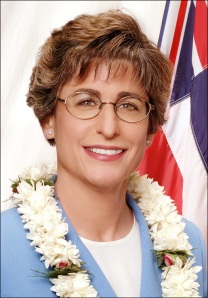There are only two federal elections of any kind in July, and tomorrow’s North Carolina run-off vote will decide three GOP nominations. All Tar Heel State Democratic nominees and the other Republican standard bearers were chosen outright in the May 8 primary.
The 8th Congressional District occupies the area east and north of Charlotte on the way to Fayetteville. The post-redistricting NC-8, represented by two-term Democratic Rep. Larry Kissell, moves a net 21 points toward Republicans on the presidential scale. The new draw adds more than 45 percent new territory for Kissell, forcing him to move right in order to survive politically. He was one of five Democrats to vote to repeal Obamacare care last week after opposing previous such attempts. He originally voted against the legislation when it was first passed, and then fought repeal only to reverse course again, so his inconsistency on the subject could become a campaign issue.
Fighting for the Republican nomination are business consultant and former congressional aide Richard Hudson and dentist and ex-Iredell county commissioner Scott Keadle (pronounced Kay-dle). Hudson placed first in the five-candidate Republican primary, capturing 32.1 percent of the vote versus Keadle’s 22.0 percent. Both men are conservatives, but Hudson enjoys North Carolina Republican establishment support, House GOP leadership backing (Majority Leader Eric Cantor’s leadership PAC), and even landed the liberal Charlotte Observer newspaper’s endorsement.
The two candidates are about even in financial resources and each has invested six figures into his own campaign, though Keadle has loaned himself more than three times Hudson’s personal contribution amount. Because of its new partisan configuration, the winner of tomorrow’s run-off will likely become the 8th District’s new congressman.
Perched on the western side of Charlotte and then driving due north half-way to Winston-Salem is the new 9th Congressional District, open because nine-term Rep. Sue Myrick (R) is retiring. The GOP battle here, tantamount to victory in November, is between former state senator Robert Pittenger and Mecklenburg County Commissioner and former sheriff Jim Pendergraph. As in the 8th District, both men are running as conservatives. Myrick has endorsed Pendergraph, but Pittenger, because of a huge $2 million self-donation, has a major financial advantage. Pittenger placed first in the primary of eleven candidates, capturing 32.4 percent of the vote as compared to Pendergraph’s 25.3 percent. Tomorrow’s winner will claim the general election and keep the reliable GOP seat in the Republican column.
Farther to the west in the Asheville area, encompassing the entire western tail of the state, lies the 11th District. This seat, like both the 7th and 8th CDs, was changed heavily to the Republicans’ benefit. Eliminating most of the city of Asheville, with its Democratic voting base, from the 11th is the main reason that three-term Rep. Heath Shuler (D) decided not to seek re-election. Shuler’s chief of staff, Hayden Rogers, is the new Democratic nominee, but the 13-point GOP redistricting adjustment will give tomorrow’s Republican nominee the inside track to victory in November.
The two 11th District run-off participants are businessmen, each in their first political campaign. Real estate investor Mark Meadows, who captured 37.8 percent of the vote and missed winning outright by just over two percentage points (North Carolina’s run-off law requires only 40 percent of the vote to win a partisan nomination as opposed to 50 percent in all other states that use a two-tiered primary system), is favored over Vance Patterson who posted 23.6 percent in the field of nine candidates. Originally, it appeared that local District Attorney Jeff Hunt was the presumed favorite, but he performed poorly and both Meadows and Patterson blew past him to secure their run-off positions.
Through the end of June, Meadows held a healthy fundraising advantage, though about half of his campaign treasury is self-contributed. Patterson is his campaign’s virtual sole source of funds and pledges to donate all of his congressional salary to local western North Carolina charities, if elected. Look for a Mark Meadows victory tomorrow and in November.








